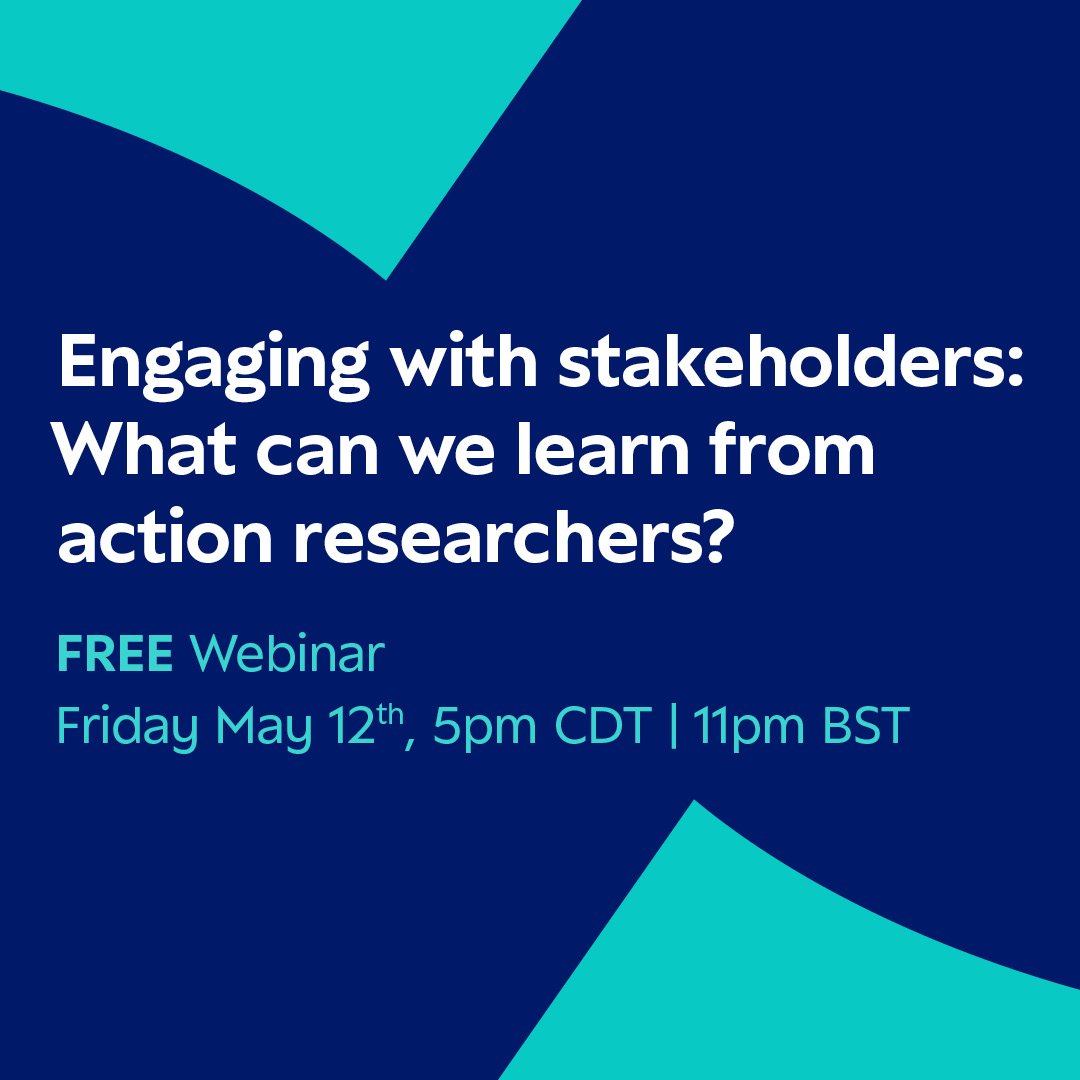Data Collection Methods
By Dr. Linda Bloomberg, joined by Dr. Janet Boberg and hosted by Janet Salmons, Ph.D., Research Community Manager for Sage Methodspace
Data Collection Methods: What Data to Choose to Collect, How to Collect Data, and From Whom
This presentation is the second of a series about qualitative research strategy from Linda Bloomberg:
Q1: Design Strategy: How to Choose a Qualitative Research Design
Methodological congruence is a key consideration in designing and conducting a rigorous and feasible qualitative research study. In addition to ensuring alignment among research problem, purpose, and research questions, it is critical that the researcher set up alignment among the research design and the methods used to collect and analyze the study’s data.
In this dialogue, Linda Bloomberg and Janet Boberg explain how to think through key questions associated with data collection and walk through an example that demonstrates ways to align research designs with methods.
Linda Bloomberg, author of "Completing Your Qualitative Dissertation A Road Map From Beginning to End," discusses analytic strategy decisions with Janet Boberg in this Methodspace presentation.
Linda Dale Bloomberg EdD., is a former adjunct faculty and dissertation advisor in the department of adult learning and leadership at Teachers College, Columbia University, and currently develops curriculum for qualitative research in graduate online programs for National University, serving as faculty coach, dissertation chair, and doctoral subject matter expert. She also serves as consultant to various research, higher education, and nonprofit advisory boards including The Future Talent Council, and is founder of Bloomberg Associates and ILIAD (Institute for Learning Innovations and Adult Development) and cofounder of Columbia University’s Global Learning and Leadership Institute. As senior researcher for the South African Human Sciences Research Council and National Institute for Personnel Research, Dr. Bloomberg’s work focused on change management; diversity, equity, and inclusion initiatives; and enhanced workplace learning. She is the author of multiple publications in the fields of qualitative research, organizational evaluation, leadership development, ensuring equitable student success, adult learning, and distance education, and is a contributor to The SAGE Encyclopedia of Educational Research, Measurement, and Evaluation (2018). Her two most recent books include the 5th edition of Completing your qualitative dissertation: A road map from beginning to end (2023) frp, SAGE; and Designing and delivering effective online instruction: How to engage adult learners (2021). Teachers College Press, Columbia University. This publication was nominated for the 2021 and 2022 Division of Distance Learning (DDL) for the Association of Educational Communications and Technology (AECT), one of the premier international organizations for instructional design and ed-tech. Dr. Bloomberg presents regularly at national and international professional conferences on topics related to diversity initiatives in higher education, adult learning, qualitative research, and dissertation instruction. She holds master’s degrees in counseling psychology, organizational psychology, and education, and is credentialed with the International Coaching Federation (ICF). In 2006, she received her doctorate in adult education and organizational learning from the AEGIS program Columbia University that was established by Jack Mezirow, founder of Transformative Learning theory.
Janet Boberg, Ed.D. has been a part-time faculty member at several universities including Arizona State University, Northern Arizona University, National University, and Northcentral University and teaches courses in certified public management, counseling, evaluation, research, and statistics.
More Methodspace Posts about Data Collection
We’re excited to share that Research Methods - part of the 'Research Skills Toolkit' - has been updated to reflect today’s research landscape. Discover brand new content on Gen AI, Data Literacy and more – designed to support researchers with the skills they need in their careers.
In this guest post, Sage author Carol Rivas explores the current AI capabilities for researching society and culture.
Watch a free recording of the recent webinar on Data Collection & Analysis by Sage. Presented by Jessica Offenberger and Sean Scarisbrick, this enlightening session equips researchers with essential tools for effective data gathering, analysis, and interpretation.
Explore new free content in Sage’s Doing Research Online collection. This meaningfully curated resource features expert insights, practical case studies, videos, datasets and how-to guides, alongside hands-on strategies for conducting robust online research.
Find examples and guidance about collecting data on blogs or vlogs.
Do you have concerns about how to carry out data collection with vulnerable populations online? Find research strategies for reaching vulnerable people online.
Storytelling has been a part of our shared life since the beginning of time. Story-based research approaches are especially valuable when studying sensitive issues or collecting data with vulnerable participants. In today’s digital world we have new ways to share and collect stories in a research context.
Hashtags offer online researchers ways to identify popular topics, trace viral messages, and locate influential thought leaders. Learn more about how researchers use hashtags with this multidisciplinary collection of open access articles.
Qualitative researchers often collect very personal data, whether in interviews or in narratives, diaries, or other records that depict their experiences. One way to protect their identities is by changing their names, and anonymizing the data.
Looking back at 2023, find all posts here!
We explored stages of a research project, from concept to publication. In each quarter we focused on one part of the process. In this recap for the year you will find original guest posts, interviews, curated collections of open-access resources, recordings from webinars or roundtable discussions, and instructional resources.
Methods Film Fest!
We can read what they write, but what do researchers say? What are they thinking about, what are they exploring, what insights do they share about methodologies, methods, and approaches? In 2023 Methodspace produced 32 videos, and you can find them all in this post!
Caroline Lenette offered a keynote address at the International Creative Research Methods conference, September 2023. See the address and learn about the 2024 conference here.
Want to learn more about research with datasets? This curated collection of open-access articles can help you understand defining characteristics, and develop data literacy skills needed to work with large datasets and machine learning tools for managing Big Data sources.
Dr. Linda Bloomberg explains ways to choose datacollection methods while aligning with the selected qualitative methodology.
Q2 has come to a close. Find the entire set of posts about data collection and other important topics here.
Learn about ethics and consent for online research from the perspective of an institutional review board member.
Find examples of ethnographic research conducted by more than one scholar.
What does it mean to be central to your research? In this post we are defining a method that asks researchers to be at the center of their studies, and looking for explanations and examples of autobiography.
How to look at data collection using an Equity Framework for CTE Research, which provides principles and practices for researchers on equity questions, designs, and implications throughout the research process.
Learn about unstructured interviews in this post from Dr. Azher Hameed Qamar.
For Pride Month 2023, learn respectful ways to study LGBTQ+ people and related issues.
Learn about the implications of insider, outsider, or mixed positions, and the importance of transparency with your readers.
In our digital world, one way to engage with others is through games. Find a collection of examples of research uses for interactive games.
Researchers who want to collect data in rural communities face can face challenges. Residents might be spread out, with few locations to meet. They might also have their own cultural norms, which might include suspicious attitudes towards outsiders. This collection of open-access studies offers a wide range of successful methods for including residents from rural settings in your study.
View the webinar and find a multidisciplinary collection of posts and videos from Alfredo Ortiz Aragón, Rosalind Beadle, Ernie Stringer and their colleagues.
Learn about using mixed methods with secondary data.
Colin Forster and Rachel Eperjesi co-authors of the second edition of Action Research for Student Teachers offer tips for researchers who want to study children in classroom settings.
What is autoethnography? How do researchers study their own experiences? See this post for definitions and open-access articles that explore this qualitative method for collecting data.






























Dr. Stommel brings clarity to the messy world of data collection on social media.